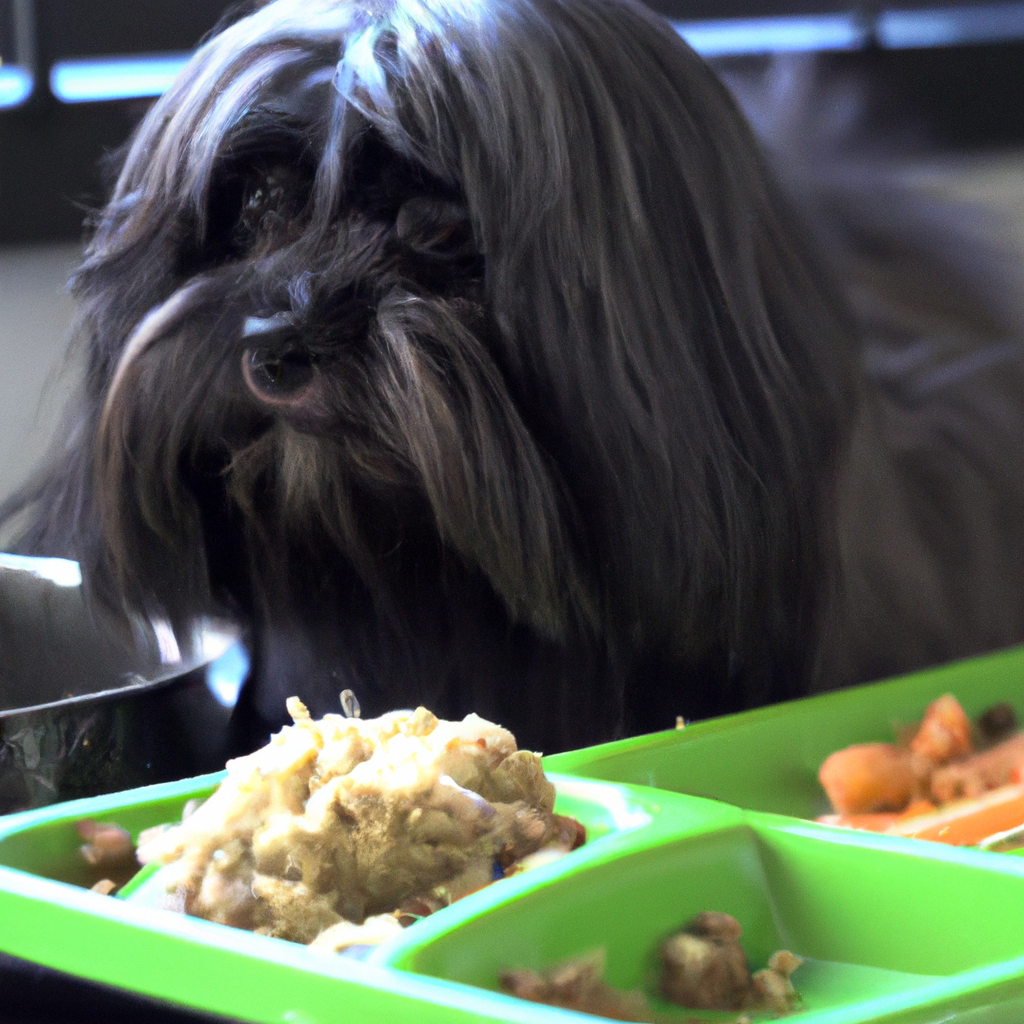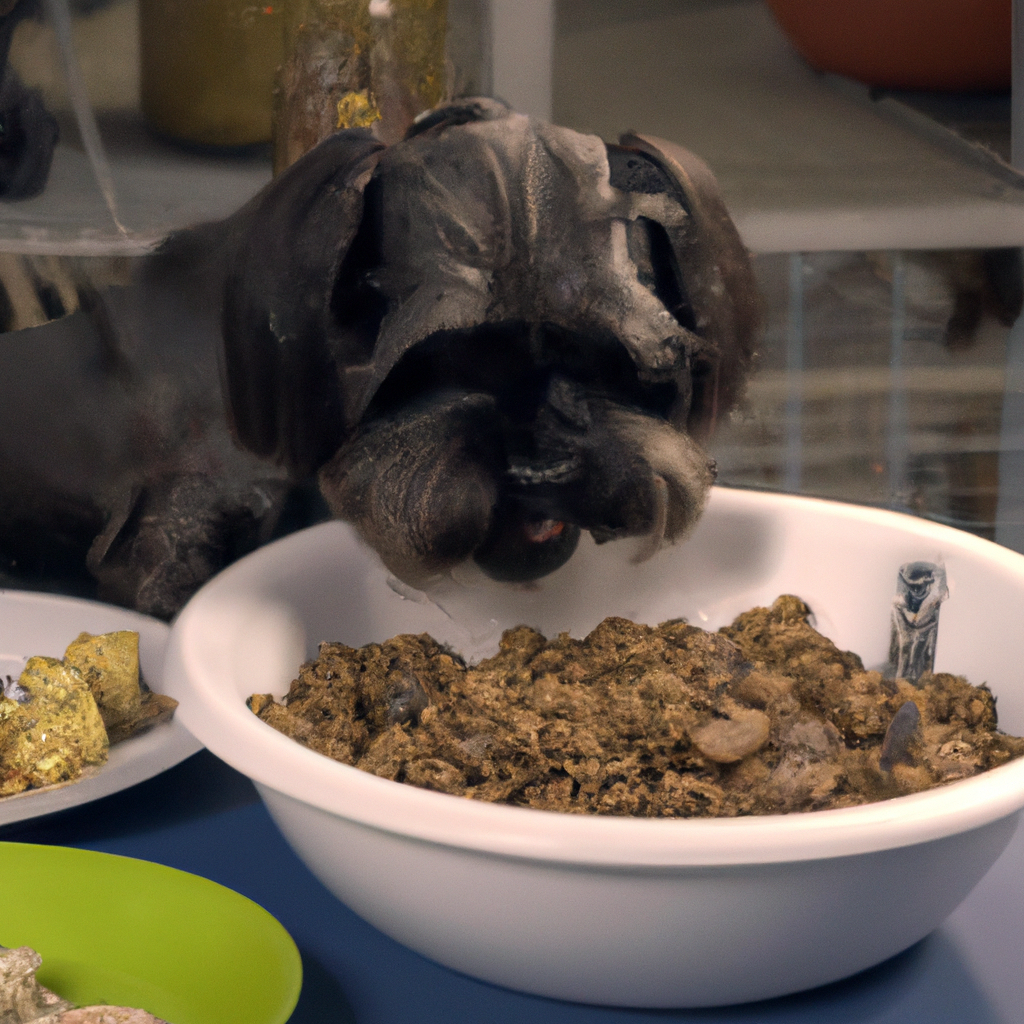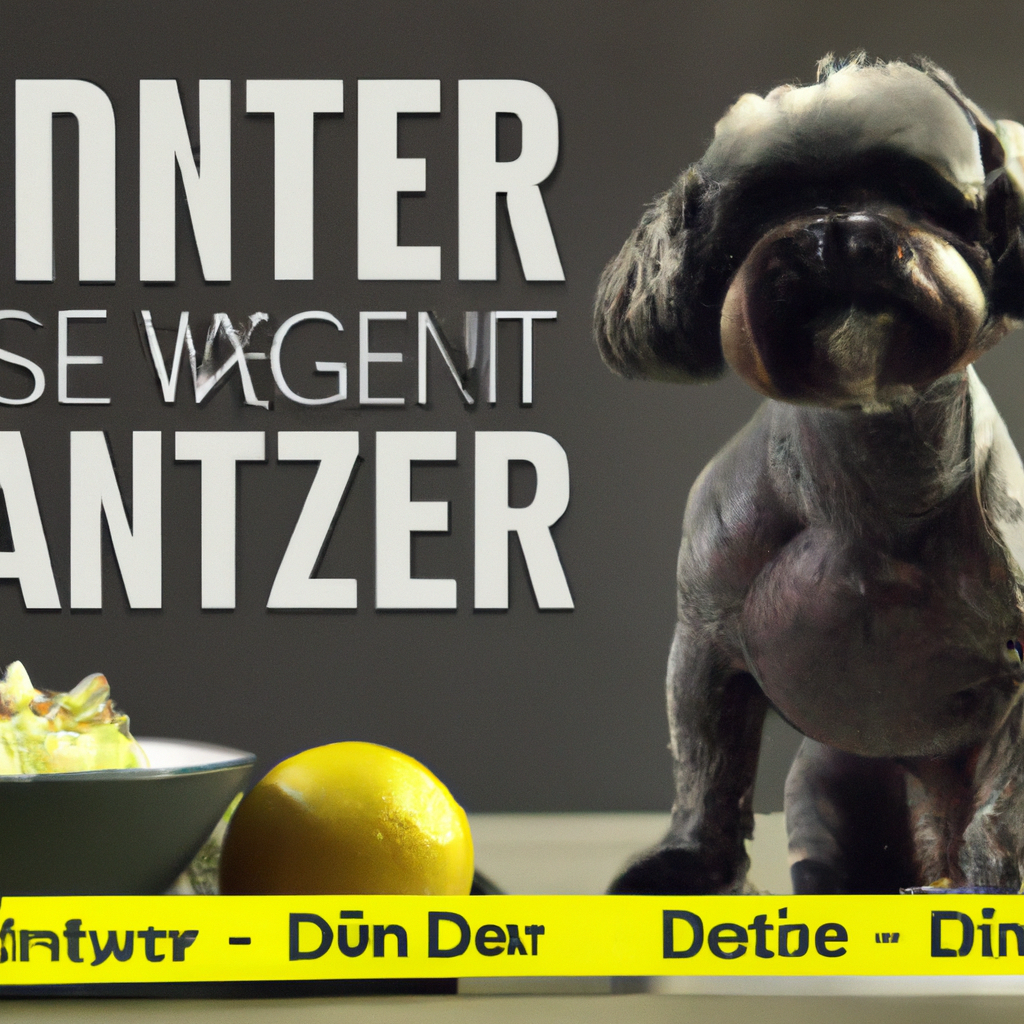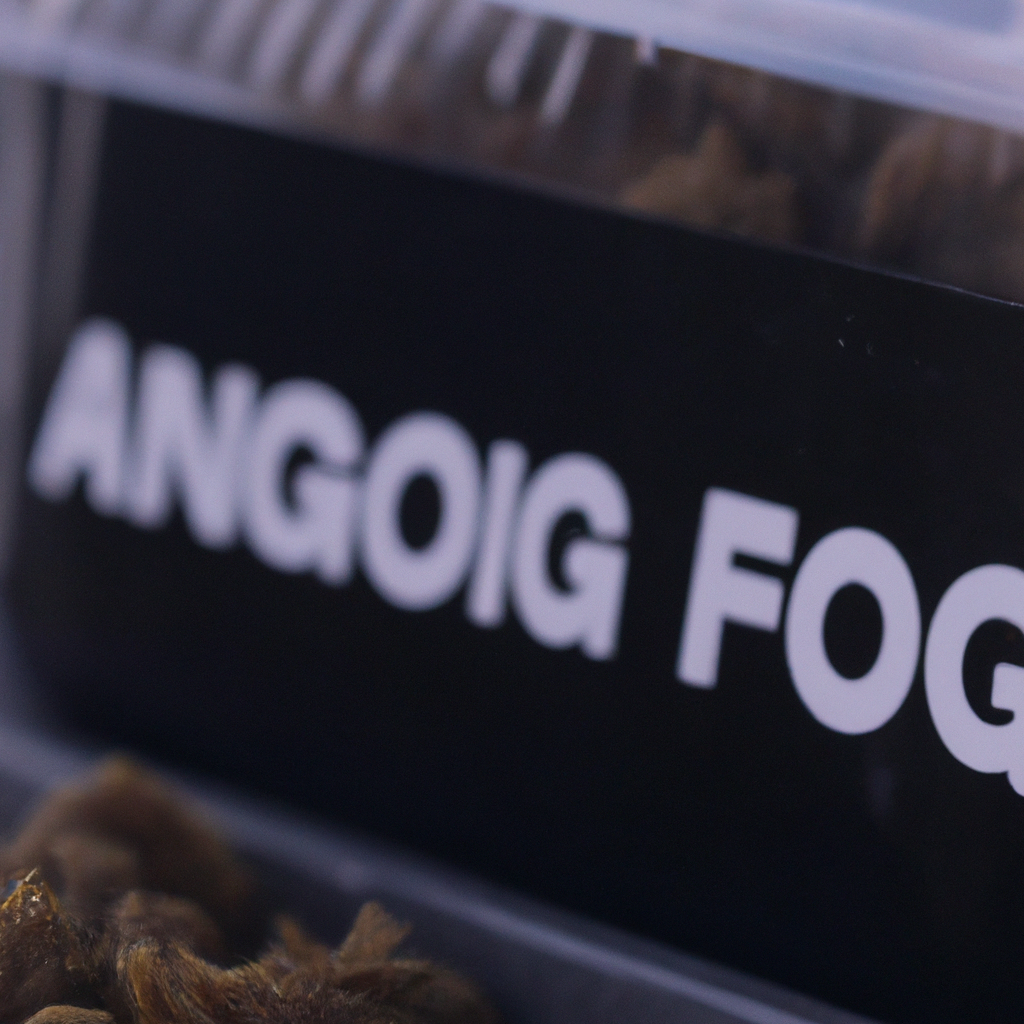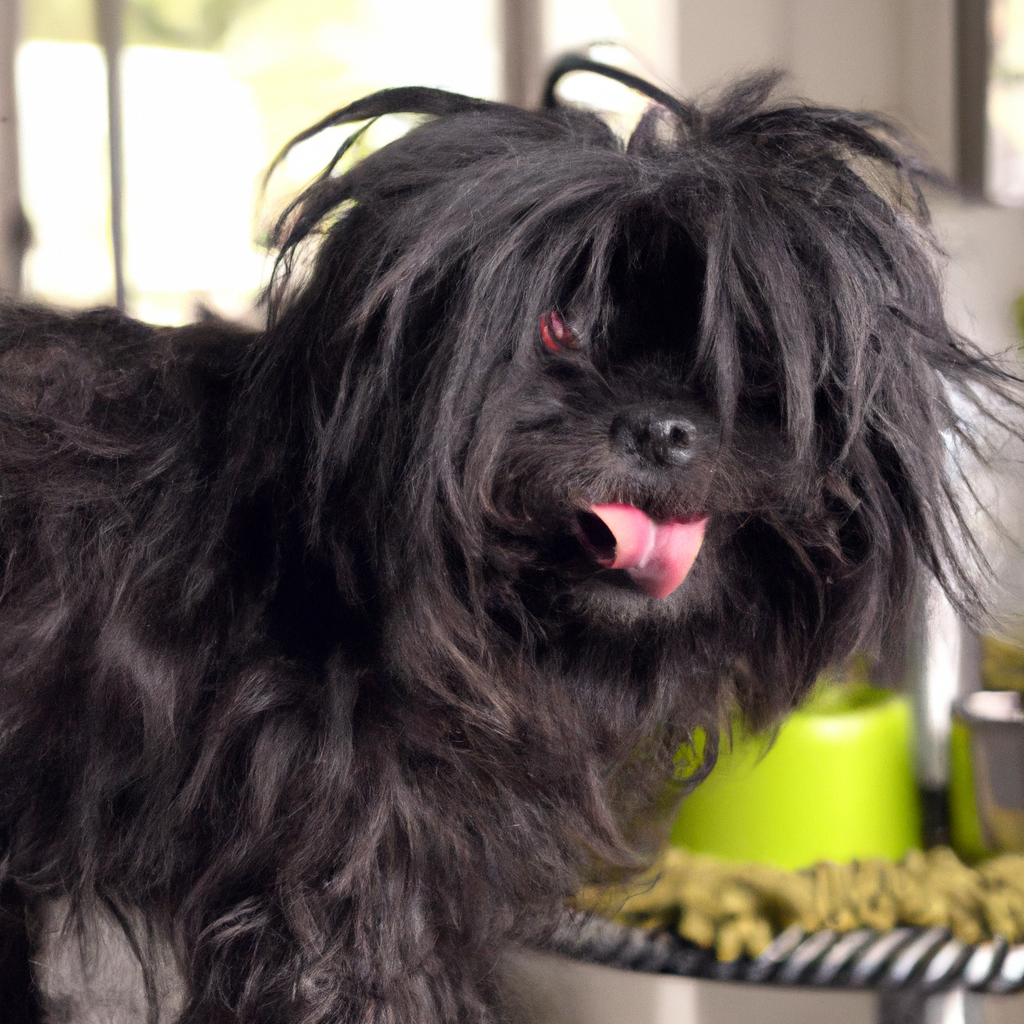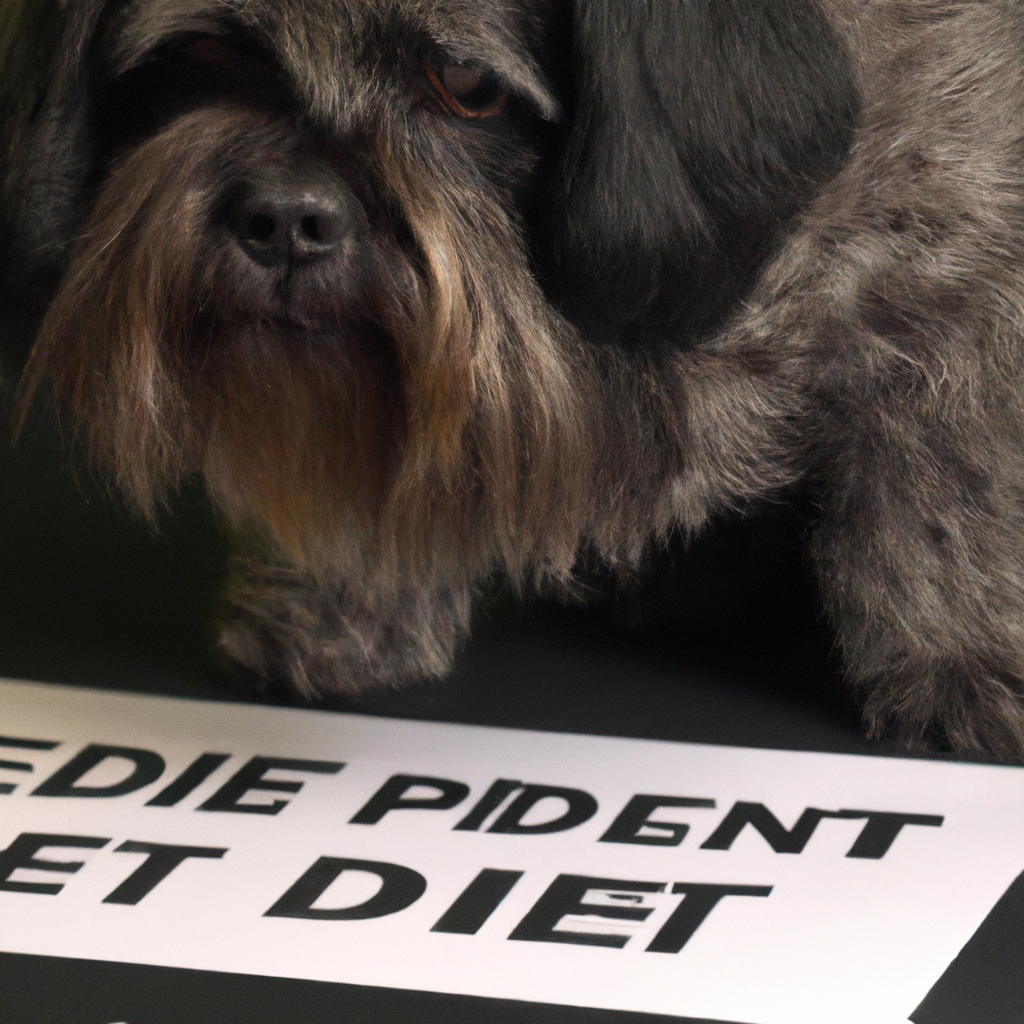The healthy meal plan for Affenpinschers is designed to provide these small, energetic dogs with the balanced nutrition they need. This plan focuses on high-quality proteins, healthy fats, and a variety of fruits and vegetables to ensure they get a wide range of nutrients. It also takes into account the specific dietary needs of Affenpinschers, such as their propensity for certain health issues like hip dysplasia and heart problems. The meal plan aims to maintain their ideal weight, support their overall health, and cater to their unique dietary needs.
Creating a Balanced Diet for Your Affenpinscher
Affenpinschers, affectionately known as “Monkey Dogs,” are small but energetic creatures that require a balanced diet to maintain their health and vitality. As a pet parent, it’s essential to understand the nutritional needs of your Affenpinscher to ensure they live a long, happy, and healthy life.
Firstly, it’s important to remember that Affenpinschers, like all dogs, are carnivores. This means that their diet should primarily consist of high-quality, animal-based proteins. Proteins are the building blocks of strong muscles and provide the energy your Affenpinscher needs for their playful antics. Chicken, beef, fish, and turkey are all excellent sources of protein that your Affenpinscher will love.
However, protein alone isn’t enough. Your Affenpinscher also needs a good balance of carbohydrates for additional energy. But be careful, not all carbs are created equal. Opt for complex carbohydrates like sweet potatoes, brown rice, and oats, which are easier for your dog to digest and provide a steady release of energy. Avoid simple carbs like white bread and sugar, which can lead to weight gain and other health problems.
Fats are another crucial component of your Affenpinscher’s diet. They provide essential fatty acids that support skin and coat health, boost the immune system, and aid in nutrient absorption. Healthy sources of fats include fish oil, flaxseed, and chicken fat. However, fats should be given in moderation as excessive amounts can lead to obesity.
Don’t forget about fruits and vegetables. They are packed with vitamins, minerals, and antioxidants that support overall health and help prevent diseases. Carrots, peas, apples, and blueberries are all dog-friendly options that your Affenpinscher will enjoy.
Now, let’s talk about portion sizes. Affenpinschers are small dogs, typically weighing between 7 to 9 pounds. This means they don’t need a lot of food. Overfeeding can lead to obesity, which can cause a host of health problems. A general guideline is to feed your Affenpinscher about 1/4 to 1/2 cup of high-quality dry food per day, divided into two meals. Of course, the exact amount will depend on your dog’s age, size, activity level, and health status. It’s always best to consult with your vet to determine the right portion size for your pet.
Lastly, hydration is key. Ensure your Affenpinscher always has access to fresh, clean water. Dehydration can lead to serious health issues, so it’s important to keep your dog well-hydrated, especially during hot weather or after vigorous play.
In conclusion, creating a balanced diet for your Affenpinscher involves providing a variety of high-quality proteins, complex carbohydrates, healthy fats, and fruits and vegetables. Portion control and hydration are also crucial. Remember, every dog is unique, so what works for one Affenpinscher may not work for another. Always consult with your vet before making any significant changes to your dog’s diet. With the right nutrition, your Affenpinscher can enjoy a long, healthy, and happy life by your side.
Top 8 Nutrient-Rich Foods for Affenpinschers
Affenpinschers, affectionately known as “Monkey Dogs,” are small but energetic breeds that require a balanced diet to maintain their health and vitality. If you’re a proud owner of an Affenpinscher, it’s essential to understand the top nutrient-rich foods that can contribute to your pet’s overall well-being.
Firstly, lean meats are a must-have in your Affenpinscher’s diet. They are rich in protein, which is crucial for muscle development and energy. Chicken, turkey, and fish are excellent choices, but remember to cook them thoroughly and remove any bones to prevent choking hazards.
Secondly, whole grains like brown rice and oatmeal are beneficial for your Affenpinscher. They provide essential carbohydrates for energy, fiber for digestion, and various vitamins and minerals. However, it’s important to note that grains should be given in moderation as excessive amounts can lead to obesity.
Thirdly, fruits and vegetables should be included in your Affenpinscher’s meal plan. They are packed with vitamins, minerals, and antioxidants that boost the immune system and promote overall health. Apples, blueberries, carrots, and green beans are some of the best options. However, avoid feeding your pet grapes and raisins as they can be toxic to dogs.
Fourthly, eggs are a great source of highly digestible protein, riboflavin, and selenium for dogs. They can be served boiled, scrambled, or even raw if your dog prefers.
Fifthly, sweet potatoes are another excellent addition to your Affenpinscher’s diet. They are high in dietary fiber, vitamin A, and other nutrients. They can be cooked and mashed for easier consumption.
Sixthly, fish oil is a beneficial supplement for Affenpinschers. It’s rich in omega-3 fatty acids, which are known to support heart health, reduce inflammation, and promote a shiny coat. You can either feed your pet oily fish like salmon or add a fish oil supplement to their food.
Seventhly, flaxseeds are a good source of omega-3 fatty acids, fiber, and protein. They can be ground and sprinkled over your dog’s food for a nutrient boost.
Lastly, dairy products like yogurt and cottage cheese can be given in small amounts. They provide calcium for strong bones and teeth, and probiotics to aid digestion. However, some dogs may be lactose intolerant, so it’s best to introduce dairy slowly and watch for any adverse reactions.
In conclusion, a healthy meal plan for Affenpinschers should include a variety of nutrient-rich foods. It’s also important to remember that every dog is unique, and what works for one may not work for another. Therefore, it’s always best to consult with your vet before making any significant changes to your pet’s diet. With the right nutrition, your Affenpinscher can enjoy a long, healthy, and happy life by your side.
Healthy Homemade Meal Recipes for Affenpinschers
Affenpinschers, affectionately known as “Monkey Dogs,” are small but energetic breeds that require a balanced diet to maintain their health and vitality. While commercial dog food is a convenient option, preparing homemade meals for your Affenpinscher can be a rewarding experience, allowing you to control the quality of ingredients and cater to your pet’s specific dietary needs.
To start, it’s essential to understand the nutritional requirements of Affenpinschers. These little dogs need a diet rich in protein to support their muscle development and energy levels. They also require a moderate amount of carbohydrates for energy, and a small portion of fats for a shiny coat and healthy skin. Vitamins and minerals are also crucial for their overall health and immune system.
One simple and nutritious recipe to try is a chicken and vegetable stew. Begin with boneless, skinless chicken breasts, which are a lean source of protein. Add a variety of vegetables like carrots, peas, and sweet potatoes, which provide essential vitamins, minerals, and fiber. Cook these ingredients in a slow cooker with enough water to cover. Once cooked, ensure the meal is cooled before serving to your Affenpinscher. This recipe not only provides a balanced meal but also offers a variety of textures and flavors that your dog will love.
Fish, such as salmon, is another excellent protein source that’s rich in omega-3 fatty acids, which are beneficial for your Affenpinscher’s skin and coat. A simple fish and quinoa dish can be a delightful change for your pet. Cook the salmon thoroughly and mix it with cooked quinoa, a grain that’s high in protein and fiber. Add steamed vegetables like broccoli or zucchini for added nutrients. Remember to remove all bones from the fish before serving it to your pet.
While protein is a vital part of your Affenpinscher’s diet, fruits can also be included in moderation. Apples, for instance, are a great source of vitamins A and C and can be a sweet treat for your pet. However, remember to remove the seeds as they can be harmful to dogs. You can serve the apple raw or cooked, mixed with a bit of lean meat for a balanced meal.
When preparing homemade meals for your Affenpinscher, it’s crucial to avoid certain ingredients that can be harmful to dogs. These include onions, garlic, chocolate, caffeine, grapes, and raisins. Also, always consult with your vet before making significant changes to your pet’s diet or introducing new foods.
In conclusion, preparing homemade meals for your Affenpinscher can be a fun and rewarding way to ensure they’re getting a balanced, nutritious diet. Whether it’s a hearty chicken stew, a fish and quinoa dish, or a simple apple treat, these meals can provide the essential nutrients your pet needs to stay healthy and energetic. Remember, the key is to use high-quality ingredients, avoid harmful foods, and consult with your vet to ensure the meals are suitable for your pet’s specific dietary needs. With a bit of time and effort, you can create delicious and healthy meals that your Affenpinscher will surely love.
Understanding the Dietary Needs of Your Affenpinscher
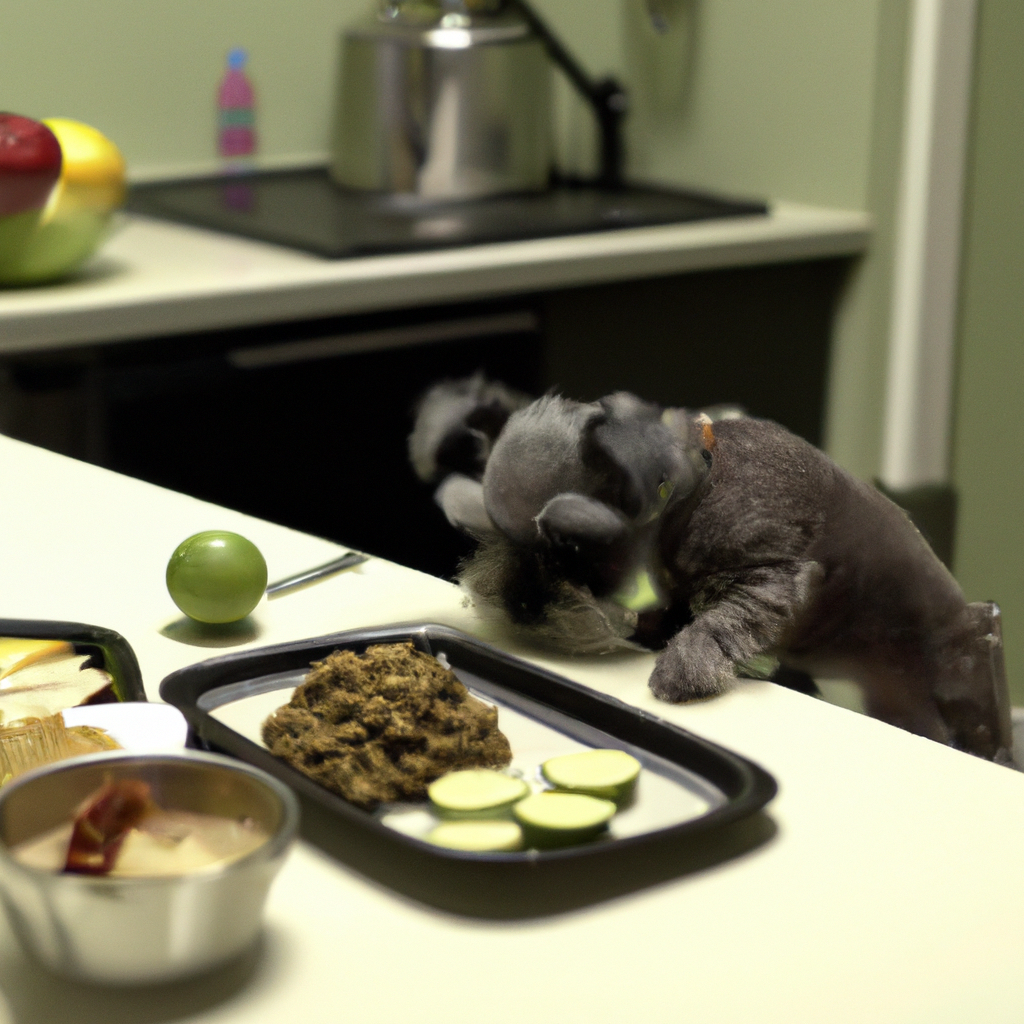
Affenpinschers, affectionately known as “Monkey Dogs,” are small but energetic breeds that require a well-balanced diet to maintain their health and vitality. Understanding the dietary needs of your Affenpinscher is crucial to ensure they live a long, happy, and healthy life.
Affenpinschers, like all dogs, require a balanced diet of proteins, carbohydrates, fats, vitamins, and minerals. However, due to their small size, they have a faster metabolism compared to larger breeds. This means they burn calories quickly and need to eat more frequently throughout the day.
Protein is a vital component of an Affenpinscher’s diet. It provides the necessary amino acids for muscle development and repair, and it also helps to maintain a healthy coat. High-quality sources of protein such as chicken, turkey, fish, and lean cuts of meat should make up a significant portion of their diet.
Carbohydrates provide the energy your Affenpinscher needs for their playful antics. However, it’s essential to choose complex carbohydrates like sweet potatoes, brown rice, and vegetables, which release energy slowly and help maintain a steady blood sugar level. Avoid simple carbohydrates like white bread and sugary treats, which can lead to obesity and other health issues.
Fats are also an essential part of your Affenpinscher’s diet. They provide energy, help absorb vitamins, and contribute to a shiny, healthy coat. Omega-3 and Omega-6 fatty acids, found in fish and flaxseed oil, are particularly beneficial. However, fats should be given in moderation as excessive amounts can lead to weight gain.
Vitamins and minerals are crucial for various bodily functions. For instance, calcium and phosphorus are necessary for strong bones and teeth, while vitamin A is essential for good vision and a healthy immune system. Most high-quality commercial dog foods will contain the necessary vitamins and minerals your Affenpinscher needs. However, it’s always a good idea to consult with your vet to ensure your dog’s nutritional needs are being met.
When it comes to feeding your Affenpinscher, portion control is key. Despite their small size, Affenpinschers have a big appetite and can easily overeat if given the chance. Overeating can lead to obesity, which can cause a host of health problems, including heart disease, diabetes, and joint issues. Therefore, it’s important to measure your dog’s food and avoid free-feeding.
Treats can be a great training tool, but they should make up no more than 10% of your Affenpinscher’s daily caloric intake. Opt for healthy treats like pieces of fruits and vegetables, rather than high-calorie commercial treats.
Lastly, hydration is just as important as nutrition. Always ensure your Affenpinscher has access to fresh, clean water. Dehydration can lead to serious health issues, including kidney problems and heatstroke.
In conclusion, a healthy meal plan for your Affenpinscher should consist of high-quality proteins, complex carbohydrates, moderate fats, and a variety of vitamins and minerals. Portion control, limited treats, and plenty of water are also key to maintaining your Affenpinscher’s health. Always consult with your vet before making any significant changes to your dog’s diet. After all, a well-fed Affenpinscher is a happy and healthy Affenpinscher.
Organic Meal Plans for Affenpinschers: A Comprehensive Guide
Affenpinschers, affectionately known as “Monkey Dogs,” are small but energetic breeds that require a balanced and nutritious diet to maintain their health and vitality. As a pet parent, you might be considering an organic meal plan for your Affenpinscher to ensure they’re getting the best possible nutrition. This comprehensive guide will help you understand the benefits of organic meals and how to create a healthy meal plan for your furry friend.
Organic food, free from artificial additives and harmful pesticides, is a great choice for Affenpinschers. It’s packed with natural nutrients that can boost your pet’s immune system, improve their coat’s shine, and enhance their overall health. Organic meals are also less likely to cause allergies or digestive issues, which are common in Affenpinschers due to their sensitive stomachs.
Creating an organic meal plan for your Affenpinscher involves careful consideration of their nutritional needs. These dogs require a diet rich in protein to support their active lifestyle. Organic sources of protein such as chicken, turkey, or fish are excellent choices. Remember, the protein should make up about 18-25% of an adult Affenpinscher’s diet.
Next, consider incorporating organic fruits and vegetables into your Affenpinscher’s meal plan. These provide essential vitamins and minerals that support various bodily functions. For instance, carrots are rich in beta-carotene, which promotes eye health, while blueberries are packed with antioxidants that boost the immune system. However, be sure to avoid fruits and vegetables that are toxic to dogs, such as grapes and onions.
Healthy fats are another crucial component of an Affenpinscher’s diet. They provide energy, aid in nutrient absorption, and promote healthy skin and coat. Organic sources of healthy fats include flaxseeds, fish oil, and chicken fat. These should make up about 10-15% of your Affenpinscher’s diet.
While creating an organic meal plan, it’s also important to consider your Affenpinscher’s age, weight, and activity level. Puppies require more calories and nutrients to support their growth and development, while older dogs may need fewer calories to prevent weight gain. Similarly, an active Affenpinscher will need more calories than a less active one. Therefore, it’s advisable to consult with a vet or a pet nutritionist to determine the appropriate portion sizes for your pet.
Lastly, remember that transitioning to an organic meal plan should be a gradual process. Start by mixing a small amount of organic food with your Affenpinscher’s current diet, gradually increasing the proportion over a few weeks. This will allow your pet’s digestive system to adjust to the new diet and prevent any potential digestive issues.
In conclusion, an organic meal plan can provide numerous health benefits for your Affenpinscher. It involves feeding them organic sources of protein, fruits and vegetables, and healthy fats, tailored to their age, weight, and activity level. With careful planning and gradual transition, you can ensure your Affenpinscher enjoys a nutritious and tasty diet that supports their health and well-being.
The Importance of Portion Control in Affenpinschers’ Meal Plans
Affenpinschers, affectionately known as “Monkey Dogs,” are small but energetic breeds that require a well-balanced diet to maintain their health and vitality. However, it’s not just about what they eat, but also how much they eat. Portion control plays a crucial role in an Affenpinscher’s meal plan, and understanding its importance can help ensure your furry friend stays healthy and happy.
Affenpinschers are known for their playful and adventurous nature. They love to explore and have fun, which means they need a diet rich in nutrients to fuel their energy. However, despite their high energy levels, they are a small breed, and overfeeding can lead to obesity and other health issues. This is where portion control comes into play.
Portion control is all about providing your Affenpinscher with the right amount of food. It’s not about restricting their diet, but rather ensuring they get the nutrients they need without overeating. Overfeeding can lead to weight gain, which can put unnecessary strain on their small bodies, leading to health problems like heart disease, diabetes, and joint issues.
So, how do you ensure proper portion control for your Affenpinscher? It starts with understanding their nutritional needs. Affenpinschers, like all dogs, require a balanced diet of proteins, carbohydrates, and fats. Proteins are essential for muscle development, carbohydrates provide energy, and fats help maintain a healthy coat and skin.
However, the amount of each nutrient your Affenpinscher needs can vary based on their age, size, and activity level. For instance, puppies require more protein for growth, while adult dogs may need fewer calories if they are less active. It’s always best to consult with your vet to determine the right diet for your Affenpinscher.
Once you understand your Affenpinscher’s nutritional needs, you can start to plan their meals. A good rule of thumb is to feed them two small meals a day, rather than one large one. This can help prevent overeating and keep their metabolism steady.
When serving their food, use a standard measuring cup to ensure you’re giving the right amount. Avoid the temptation to give them extra food or treats, as this can quickly lead to weight gain. Remember, treats should make up no more than 10% of your Affenpinscher’s daily caloric intake.
In addition to portion control, it’s also important to provide your Affenpinscher with regular exercise. This can help burn off any extra calories and keep their weight in check. Plus, it’s a great way to bond with your furry friend!
In conclusion, portion control is a key component of a healthy meal plan for Affenpinschers. By providing your Affenpinscher with the right amount of food, you can help prevent obesity and other health issues, ensuring they live a long, healthy life. Remember, it’s not just about what they eat, but also how much they eat. So, take the time to understand your Affenpinscher’s nutritional needs and plan their meals accordingly. Your Affenpinscher will thank you for it!
How to Incorporate Raw Food into Your Affenpinscher’s Diet
Affenpinschers, affectionately known as “Monkey Dogs,” are small but energetic breeds that require a balanced and nutritious diet to maintain their health and vitality. One way to ensure your Affenpinscher is getting the nutrients they need is by incorporating raw food into their meal plan. This might seem daunting at first, but with a little knowledge and preparation, it can be a rewarding experience for both you and your furry friend.
Raw food diets for dogs, often referred to as Biologically Appropriate Raw Food (BARF), are based on the principle that dogs are carnivores and should eat a diet similar to their wild ancestors. This means a diet rich in raw meat, bones, fruits, and vegetables. The benefits of a raw food diet can be numerous, including improved digestion, healthier skin and coat, reduced allergy symptoms, and better weight management.
Before you start incorporating raw food into your Affenpinscher’s diet, it’s important to do your research and consult with a veterinarian. They can provide guidance on the right balance of nutrients for your dog’s age, size, and health status. Remember, a balanced diet for dogs should include proteins, carbohydrates, fats, vitamins, and minerals.
Once you’ve got the green light from your vet, you can start introducing raw food into your Affenpinscher’s diet gradually. This is important to avoid upsetting your dog’s stomach. Start by adding small amounts of raw food to their regular meals, gradually increasing the amount over time. This will allow your dog’s digestive system to adjust to the new diet.
When it comes to choosing the right raw foods for your Affenpinscher, variety is key. For proteins, consider options like chicken, beef, turkey, or fish. Remember to include organ meats like liver and heart, which are rich in essential nutrients. Raw bones can also be a great addition, providing a natural source of calcium and helping to keep your dog’s teeth clean. However, always supervise your dog when they’re eating bones to prevent choking.
Fruits and vegetables can also be included in your Affenpinscher’s raw food diet. They provide essential vitamins, minerals, and fiber. Consider options like apples, carrots, spinach, and blueberries. However, remember that not all fruits and vegetables are safe for dogs. Avoid onions, grapes, and avocados, which can be toxic to dogs.
While a raw food diet can have many benefits for your Affenpinscher, it’s not without its challenges. It can be time-consuming to prepare and more expensive than commercial dog food. It’s also important to handle raw food safely to prevent bacterial contamination. Always wash your hands and any surfaces that come into contact with raw meat.
In conclusion, incorporating raw food into your Affenpinscher’s diet can be a great way to provide them with a balanced and nutritious diet. It requires careful planning and preparation, but the potential health benefits for your dog can make it worth the effort. Remember to consult with a veterinarian before making any major changes to your dog’s diet, and always monitor your dog’s health and behavior closely as you make the transition. With the right approach, a raw food diet can help your Affenpinscher thrive.
Avoiding Common Allergens in Affenpinschers’ Meal Plans
Affenpinschers, affectionately known as “Monkey Dogs,” are small but mighty creatures with a big personality. As a pet parent to an Affenpinscher, you want to ensure that your furry friend is getting the best nutrition possible. However, like many breeds, Affenpinschers can be prone to certain food allergies, which can make meal planning a bit of a challenge. But don’t worry, we’re here to help you navigate this journey, ensuring your Affenpinscher enjoys a healthy, allergen-free diet.
Firstly, it’s important to understand what food allergies are. Essentially, they occur when a dog’s immune system mistakenly identifies a particular food ingredient as harmful and reacts against it. This reaction can cause a variety of symptoms, including skin irritations, gastrointestinal issues, and even behavioral changes.
Now, let’s delve into the common allergens for Affenpinschers. The usual culprits include beef, dairy, wheat, egg, chicken, lamb, soy, pork, rabbit, and fish. However, it’s crucial to remember that every dog is unique, and what causes an allergic reaction in one Affenpinscher might not in another.
So, how can you create a healthy meal plan that avoids these common allergens? The key is to focus on hypoallergenic foods. Hypoallergenic diets are designed to minimize the risk of an allergic reaction by eliminating the ingredients that commonly cause them.
Start by choosing a high-quality, grain-free dog food as the base of your Affenpinscher’s diet. Look for brands that use novel proteins like venison, duck, or kangaroo, which are less likely to cause an allergic reaction. Similarly, opt for carbohydrate sources that are less likely to trigger allergies, such as sweet potatoes or peas.
Next, consider incorporating fresh fruits and vegetables into your Affenpinscher’s diet. Not only are they less likely to cause allergies, but they also provide essential vitamins and minerals. Blueberries, apples, carrots, and green beans are all excellent choices. Just remember to avoid grapes and raisins, as they are toxic to dogs.
Supplementing your Affenpinscher’s diet with omega-3 fatty acids can also be beneficial. Omega-3s are known to reduce inflammation, which can help alleviate allergy symptoms. Fish oil is a great source of omega-3s, but if your Affenpinscher is allergic to fish, flaxseed oil is a good alternative.
Lastly, remember that hydration is just as important as nutrition. Always ensure your Affenpinscher has access to fresh, clean water.
Of course, it’s always a good idea to consult with your vet before making any significant changes to your Affenpinscher’s diet. They can provide personalized advice based on your dog’s specific needs and health history.
In conclusion, while food allergies can pose a challenge, they don’t have to limit your Affenpinscher’s enjoyment of mealtime. By focusing on hypoallergenic foods and avoiding common allergens, you can create a meal plan that keeps your Affenpinscher healthy and happy. After all, a well-fed Affenpinscher is a happy Affenpinscher!In conclusion, a healthy meal plan for Affenpinschers should include a balanced diet of high-quality commercial dog food, supplemented with lean proteins, fruits, and vegetables. Portion control is crucial to prevent obesity, and treats should be given sparingly. Regular vet check-ups are also essential to monitor their nutritional health and make any necessary adjustments to their diet.
